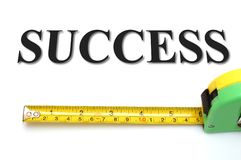We are delighted to introduce a guest blog by our colleague and teacher Laura Griffith, whose insights challenge us to think about who and how we are in our education work.

‘Separation anxiety and how teachers can deal with it’ – that was my top Google Search for my first three weeks of teaching. I was very hard on myself about this, it seemed perfectly fine for a Junior Infant child to cry before school but I taught Senior Infants. I questioned my teaching, if only I knew what I was doing ‘wrong’, I could change it.
Looking back on it, I still wonder why that child suddenly became so anxious about going to school. I think about a literacy assessment I carried out that first week of school. I wonder did I excessively focus on measurable outcomes and subconsciously lose sight of the emotional needs of the child; her need for care, understanding and encouragement. Did these values that should have been at the heart of education become less valuable because they can’t be measured. The results of the OECD’s PISA 2009, contributed to the development of ‘Literacy and Numeracy for Learning and Life – Ireland’s national strategy to improve literacy and numeracy among children and young people 2011-2020’. I began my initial teacher training in September 2011 and I remember this document permeating my experience of School Placement, improving literacy and numeracy was an urgent national priority. When I reflect on the practice of league tables, metrics, flow charts etc., I think about the negative consequences these practices have on teachers and students alike and I wonder who is it that benefits from this and who doesn’t benefit? Is it our economy that gains? ‘The Literacy and Numeracy for Learning and Life’ document promotes ‘raising standards to continue to attract high-value jobs through inward investment’ and is ‘essential for the rebuilding of our economic prosperity’. While it is important, economic gain can’t be the sole purpose of education, and I wonder if we do not become clear about our educational values, do we run the risk that league tables will make decisions for us?
Maybe the child’s anxiety around going to school had nothing to do with assessments or lessons but something completely different, I’ll never know. Albert Schweitzer tells us that ‘sometimes our light goes out and is rekindled by a spark from another person. Each of us has cause to think with deep gratitude of those who have lighted the flame within us.’ I think that’s the wonderful thing about teaching, our connections with our pupils and colleagues can have a big impact. Michelle Obama’s wish for young people is for them to know that they matter, that they belong. She urges them not to be afraid, to be focused, determined, courageous and hopeful. Michelle Obama wanted to measure her success by the impact she had on people’s lives. That’s the funny thing about impact, it can’t easily be measured. You never really know the true impact you have on those around you. You never really know how much someone needed your kindness or how much someone needed you to believe in their capability.

Sometimes when I think about an excessive focus on measurable outcomes in education, I wonder about how this neo-liberal culture effects human connections that are so essential in education. I think about its tendency to harm relationships by promoting aggressive competitiveness as people protect their own interests in order to ‘get ahead’. Maybe it’s not surprising that some people are reluctant to share information and openness required for organisational learning to take place. Perhaps then it’s no surprise that our workplaces are stressful making the perfect breeding ground for ‘scapegoating’ where people displace frustrations on others which breeds further spirals of incivility.
Sounds like a toxic culture, doesn’t it? Mahatma Gandhi says ‘Keep your thoughts positive they become your words, keep your words positive they become your behaviour, keep your behaviour positive, it becomes your habits, keep your habits positive, they become your values’. Your thoughts, words, behaviour, habits and values become ‘the way we do things around here’ or the culture of our school. Culture manifests itself at the deepest level though people’s values and these values, attitudes and behaviour drive decisions and actions in schools.
Every member of staff has a part to play in maintaining the culture of the school. Our voice is our power and our power (formal or personal) is our potential to influence others, but power is value neutral. It is how we use our power that impacts people’s lives. It can be constructive or destructive, positive or negative. It can be used to empower rather than to control and to humanize rather than to measure.
John Wooden states; ‘No written word nor spoken plea, can teach our youth what they should be. Nor all the books on all the shelves. It’s what the teachers are themselves.” So who are we who teach? What are the values that we hold dear?
Laura Griffith
